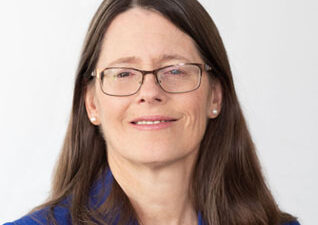In this episode:
Integrated care helps bring together care for the body and mind. In this episode, our guests discuss this body-mind approach and how doctors are implementing this model. How could it benefit you or a loved one? Hear insights from Dr. Alin Severance, medical director of Behavioral Health Services at UPMC Health Plan and University of Pittsburgh professor Dr. Charles Jonassaint, whose work focuses on reducing health disparities.
Have questions? Email us at [email protected]
Resources:
Are you experiencing a crisis or are concerned about a loved one?
- For general help, Allegheny County residents can call resolve Crisis Network which provides crisis counseling for a variety of issues, at 1-888-796-8226, or click here.
- For help with addiction, call the Substance Abuse and Mental Health Service Administration's hotline at 1-800-662-4357, or click here.
- For general resources on addiction and mental illness, visit the Substance Abuse and Mental Health Services Administration, here.
- For help with a mental health crisis, reach National Alliance on Mental Illness by dialing 988, or click here.
- To reach UPMC Western Psychiatric Hospital and UPMC Western Behavioral Health, call 1-877-624-4100, or click here.
- UPMC Health Plan members can learn more about behavioral health programs, tools, and resources, by clicking here.
- To learn more about Community Care Behavioral Health, click here.
More:
What is integrated care? Read this explainer from the American Psychological Association.
Here are resources for integrated care for providers, from the Centers for Medicaid & Medicare Services.
Check out evidence-based resources, tools and support for organizations working to integrate primary and behavioral health care, from the National Council of Mental Well Being, funded through a federal grant.
A report by the Centers for Disease Control and Prevention says fewer than half the children diagnosed with sickle cell disease get proper screening sand treatments. Learn more here, from Fox 13.

Dr. Ellen Beckjord: Today on Good Health, Better World, we're going to talk about integrated care. And I'm so pleased to have with me two guests, Dr. Alin Severance, medical director of Behavioral Health Services at UPMC Health Plan and Associate Medical Director for Community Care Behavioral Health Organization. Welcome, Dr. Severance.
Dr. Alin Severance: Thank you so much, Ellen. Good to be here.
Dr. Ellen Beckjord: And also Dr. Charles Jonassaint, assistant professor of medicine, social work and clinical and translational science for the University of Pittsburgh School of Medicine. Welcome. Dr. Jonassaint.
Dr. Charles Jonassaint: Hey, thanks a lot, Ellen. Happy to be here.
Dr. Ellen Beckjord: Dr. Severance, if I could please start with a question for you. Could you please explain the integrated care model and what areas make up integrated care and how implementation of this model really supports overall well-being?
Dr. Alin Severance: Before I describe the model itself, I would like to first emphasize the bidirectional relationship between mental and physical health. Many acute and chronic medical illnesses are associated with increased rates of depression and anxiety, and then behavioral health conditions are associated with worse outcomes for many medical illnesses. And on the face, this makes sense. A depressed person may be less likely to care for themselves, to seek care, or to follow through with medical advice. This is a sad statistic. Serious mental illness is actually associated with a 15- to 25-year reduction in life expectancy. And it's not due to suicide. It's due to common medical problems such as cardiovascular disease that's not really being attended to, stroke and cancer.
And you might think that patients would benefit most when their mental and physical health needs are being met at the same time in the same location. And you would be right. Unfortunately, medicine in the U.S. tends to be practiced in silos with each specialty focusing on a particular organ or family of diseases. Psychiatry, in particular, has often stood apart from its peers with details about patient care concealed by privacy concerns and confidentiality laws. So, the status quo for most people is that primary care providers treat what they can, and then they provide referrals for more specialized conditions or when their patients are not improving. Sadly, less than half of patients referred out to mental health services ever follow through, and as few as 20% of patients started on an antidepressant in a primary care setting, experienced a significant improvement in symptoms. So, there's a big opportunity to do things better.
Dr. Ellen Beckjord: You're a physician, you're a psychiatrist by training. That's correct. Dr. Jonassaint and I are clinical psychologists. And so that's definitely informing our view of this discussion. But you're doing a wonderful job of explaining how mental and physical health are so intimately connected. And please continue, because I think where you're going is looking at whether and how the health care system can and should do a better job of integrating physical and behavioral health care.
Dr. Alin Severance: So, the idea of integration, of behavioral health, it brings varying levels of behavioral health care, behavioral services into the primary care setting. That can be as basic as universal screening for common behavioral health conditions such as anxiety, depression and substance use disorders. That could involve active coordination with area behavioral health professionals for shared patients. And then on the higher end of this spectrum are co-location where physical health and behavioral health services are provided at the same clinic, building, or medical campus. And integrated care in which treatment is designed and delivered by a team with evidence-based screening and treatment and shared documentation and billing codes. The collaborative care model is the most widely studied example of integrated behavioral health care.
To put a little bit more detail on this. The key principles of the collaborative care model are: One, a patient centered team care in which physical health and behavioral health clinicians use shared care plans that incorporate a patient's goals and that the patient's needs are met in one location. Two, population-based care. This means that patients are tracked in a registry to ensure that no one is falling through the cracks. And then there's proactive outreach to those patients who are not improving.
Consultation with a psychiatrist is more caseload focused as opposed to ad hoc, leading to higher quality of treatment for all patients, not just the specific one that the PCP might have questions about. The third principle is measurement-based treatment-to-target. That's a mouthful. That means you're taking psychometric tools such as the PHQ-9, a common depression screen, the GAD seven, a common screen for anxiety disorders. And you use them sort of serially to track progress until the clinical goals are achieved and you don't stop until they reach remission, or at least the greatest level of improvement possible. The fourth principle is evidence-based care. That just means that treatments that are provided have a strong evidence base. And then the last principle is accountable care in which the entire team is reimbursed for the quality of care and the clinical outcomes and not simply the volume of services provided. For most of us on the physical health side and on the behavioral health side, we are paid by volume. You see a patient, you spend X number of minutes with them, you get paid X number of dollars. There's not really any recognition for when people are leading to meaningful improvements in their health outcomes.
Good, quality care should be recognized and compensated. So, in terms of what does this model actually do? There's quite a bit of research. The model has been demonstrated to improve outcomes for patients with many chronic illnesses. So, populations have included patients with cancer, cardiovascular disease, diabetes and chronic pain. And the improved outcomes are not simply their behavioral health outcomes, but their whole health outcomes.
The provision of integrated care also reduces stigma because it allows behavioral services to be provided to patients who might never consider seeking behavioral health services on their own.
Dr. Ellen Beckjord: It's really helpful to hear you enumerate those five components of the model because I think it does a good job of explaining what we're really talking about. It also to me underscores why this is largely in many cases still aspirational. That's a lot to achieve.
Dr. Alin Severance: It is a lot.
Dr. Ellen Beckjord: All of it really important, and I can imagine that there are lots of instances where some components of that model are really well implemented and addressed, but not others. If I could ask Dr. Jonassaint to share some insight from your work as a front-line health care provider, as a psychologist, thinking about integrated care. And if I could ask you to please start by talking about the population that I know you are such an advocate for and have really devoted your research and clinical practice to, which are people living with sickle cell disease. So, if you could say a little bit about that experience and then would love to hear you give us some of your insight based on experiences, being a behavioral health provider in the context of care for people living with sickle cell disease.
Dr. Charles Jonassaint: This is obviously a really interesting conversation and important conversation, particularly for the work that I do as a health psychologist. There is evidence, empirical evidence, that collaborative care is effective and at the same time, we don't see that implemented routinely.
I'm lucky enough to be in one of those clinics where I feel like we're at least trying to implement a collaborative care and an integrative care model. So, of course, I'm a clinical health psychologist. I am in a benign hematology clinic, primarily serving patients with sickle cell disease, which is a genetic disorder that affects primarily people of African descent. And the hallmark of sickle cell disease is chronic pain. So, if you can imagine just your blood cells getting hard and sticky, they get stuck in different blood vessels. And then because of that blockage, there's a lack of oxygen supply or blood supply to certain organs.
So, not only does that lead to tissue and organ damage, but the chronicity of that infarct is going to cause chronic pain for patients. And so that's also something in addition to the mental health component, managing chronic pain, not just with opioids but with behavioral approaches. So thus, there's a ton of need for behavioral health in sickle cell disease and these sickle cell clinics. So, I'm fortunate enough to be in a clinic with a social worker myself as a psychologist. And also, we have a psychiatrist she does see some of our patients about 20 to 25. But it's not as though she has 100% time just to see patients with sickle cell disease, so.
Dr. Ellen Beckjord: Oh goodness.
Dr. Charles Jonassaint: But the nice thing about our team is a lot of time a patient will come into the clinic and they don't know that they're going to go see a psychologist. They don't know that they're going to see a social worker. They definitely don't know that they're going to get referred to a psychiatrist. But we do have a nice intensive care wraparound clinic that is specifically for those patients who are higher utilizers, patients who may have a little bit more challenge self-managing or controlling the conditions of their disease. And that is an opportunity for all of us on the team and this was a lot better, obviously, pre-pandemic, we are starting to do it now virtually, but we would all be in the same clinic and those patients would get to go and see the social worker. They get to go see the psychologist, get to meet with the psychiatrist. Even we had one of our community-based organizations sending a clinical or community partner to be in that clinic as well. So, they get connected with the community in addition to getting connected with an integrated medical team. So, I think that the model sounds great. The idea of it is fantastic, but there are still a lot of holes and I'm sure we'll get into some of the barriers.
Dr. Ellen Beckjord: I'd love to hear both of your perspectives. Maybe, Charles, I could start with you. And then, Alin, you could follow up, on the ways that communication within the providers who represent the integrated care team is critical to the success of the model, and then also your perspectives on some of the challenges there with respect to either co-location or time or even reimbursement for that time spent, which I assume in many cases is not present.
Dr. Charles Jonassaint: Well, just to kind of answer the last question, I really do think that some of the I think it is absolutely critical to have the community involved. And I think that communication between all disciplines is absolutely necessary. And that's probably one of the most challenging pieces about making this function correctly and effectively. I'd say that there's probably three main barriers that we run into, and all of those contribute to communication. One is, as you mentioned it, time, two is finances and then three is culture. We are really up against that barrier of status quo. Everybody is in their separate discipline. We are used to working in silos and creating that communication.
But, Alin, I would love to kind of hear about how you address some of those barriers.
Dr. Alin Severance: Your clinic sounds fantastic. I think your patients are lucky. And I would imagine, particularly for a patient who has minimal prior exposure to the behavioral health system, that meeting with the entire team is probably a lot less scary. There's sort of like an implicit buy in from everybody there that this is the way to do it. I imagine that they don't have to pick up the phone. They don't have to call the five numbers that, you know, that's what usually happens. A PCP says, hey, here's a list of psychiatrists that I like and you go down the list and most of them will tell you that they're not taking patients or we have an X-month wait. And for a depressed person, that might be enough for them to just give up.
Dr. Charles Jonassaint: Yeah, it's enough of a roadblock to make an already difficult road, you know, impassable. And it's not something that a lot of our patients are going to do on their own, on their own initiative. But if you can say, hey, we'd love for you to see a psychologist. In fact, he's right down the hall. If you could just pop in and to see him, just introduce yourself. Just say hello. You find out that Dr. Jonassaint is not a scary monster, right? That's not going to sit you on a couch and ask you about your mother and all your deep, dark secrets. It makes it a lot easier to have that second session, that second appointment.
Dr. Ellen Beckjord: I like that specific example that you just gave Dr. Jonassaint about the sort of warm handoff in real time to the psychologist, because there was a point in the conversation where I feel like all three of us were basically talking in a way about tricking people into seeing behavioral health. They don't even know it's a behavioral health provider. We just jump out from behind a chair and it's like, now you're in the room with us. But hey, you know, whatever it takes because it's actually, I appreciate that coming up because we've talked a lot in different episodes about stigma associated with behavioral health care. And that's a very real thing, getting a referral to behavioral health is a very complicated thing. Right. And then the effort to follow up on the referral and the courage that that takes and the vulnerability that that takes, and then to get the door slammed in your face over and over again if you're not able to get an appointment.
You mentioned Dr. Severance, you know, for a depressed person, that may be enough to give up. I think for someone who isn't depressed, it's enough to give up. It's just, it's just too hard. I did want to, though, ask about one more piece. And so, Charles, you had mentioned time, finances and culture as some barriers to how integrated care teams can coordinate and truly collaborate on care delivery for people and populations. But I wonder if either of you would agree that a fourth component is just a unified information environment. You know, are you working within the same medical record?
So that information environment and the ways that things like electronic medical records can support that I think are really important too. But are we encountering barriers frequently there as well?
Dr. Alin Severance: For sure. I mean, there are health systems that have completely segregated behavioral health records from the rest of the physical health records, even within the same electronic health record. So, the primary care team doesn't really know what's going on in terms of their patients' behavioral health needs, even though they're in the same, you know, health organization. I mean, fortunately, in those cases, generally, the psychiatrist can look up the primary care provider’s notes and get a sense of what's going on medically. And there are less barriers in terms of picking up the phone or sending an email or a message from within the electronic health record of, hey, can we talk about this person? But yes, these barriers are substantial.
Dr. Charles Jonassaint: Yeah, it's interesting. We run into the problem now of…I have to be restrictive about what information I'm putting in the medical records because it can have a very negative impact on patients’ care. And so, I think previously psychiatry and medicine were separated in terms of their notes, and people in medicine could not access those psychiatric notes. I've always been, in our clinic, in our benign hematology clinic, I've always entered my notes directly into the medical records. And I think that now psychiatry is, or medicine has more access to psychiatry notes. The problem is, is that in almost going back to the stigma piece that you mentioned Ellen, for a lot of providers getting that information, this patient was suicidal, this patient was cutting, this patient had homicidal thoughts, anything that seemed, or psychotic thoughts, anything to that level. I feel like it's sometimes it can be dangerous, or maybe challenging, for primary care physicians and other medical providers to know how to manage that.
Obviously, for Alin, you know, he's on both sides. He understands. All right. Suicidal thoughts doesn't mean this person is going to kill themselves right now. But I almost always have to temper what I'm putting in the medical records just so that it doesn't lead to.. because I've had those situations where you put something in the medical records, all of a sudden the patient's getting a call from their provider saying, ‘Oh, are you going to kill yourself? Are you going to kill yourself?’ And that's the last thing that we want.
Dr. Ellen Beckjord: And that gets back to that culture piece that's just sort of understanding. And maybe culture is not the right word there. But when you talked about culture, it was sort of around the idea of there needs to be an understanding of the different disciplines represented on the care team and a trust in the different providers to manage the components of care that are really core to their discipline. And I would think also enough respect and trust and deference within the care team to know which provider would be the most likely to be able to make an informed decision about different components of care depending on the situation.
Dr. Alin Severance: Could I jump in? Charles’ point about being careful about what you document. I mean, it speaks to the fact that stigma and prejudice are not just in the purview of patients. It affects physicians and health care professionals, too. It usually comes out of a place of fear, discomfort, uncertainty. Team-based care just immediately inoculates that because of the fact that, if Charles and I are on a team with the hematologists, all of those kinds of questions can be answered immediately.
That's why our patients who embrace the behavioral health component of their overall treatment have better outcomes. And we want you to have the best quality life possible. That sounds a whole lot different than, I think you should see a psychiatrist and here are six names.
Dr. Ellen Beckjord: Yep. Sounds very different.
I would like to talk about some potential bright spots or examples where you can speak to integrated care working and working well. And so, Dr. Jonassaint, you've given us lots of insight into what's happening at the benign hematology clinic at UPMC that you've been a part of. Dr. Severance, are there examples of integrated care in action that you'd like to speak to or share some thoughts around?
Dr. Alin Severance: Well had maybe a more modest level. I mean, UPMC Health Plan has made behavioral health a business priority, and there are ongoing efforts to support wide implementation of the cloud of care model and other approaches to integrated care. There are also several free behavioral health services that are available to our members that can be a very helpful complement to the care that they would already be receiving in the primary care environment. So, one example is RxWell, which is an evidence-based, digitally delivered cognitive behavioral therapy app, and it has modules for anxiety, for depression and a variety of other health conditions. Another program is Prescription for Wellness, which is diagnosed specific condition management by an experienced behavioral health clinician.
And then there's another more recent program, which is just UPMC offers virtual counseling through the UPMC AnywhereCare app, which is available to members with commercial, Medicare, and SNP special needs plan insurance, which is a great option given, you know, wait times that you might find throughout the community. I did want to say, though, in the Harrisburg area of the state, UPMC Pinnacle and the Associated Community Health Clinics about two years ago launched like a high-fidelity collaborative care model and compared to area wait times of about six months for therapists and ten months for a general adult psychiatrist, they're able to schedule appointments with the behavioral care manager within several days.
That is huge. It’s working. More primary care offices are expressing interest in having it become available. I very much want them to succeed. I could also speak a little bit about Community Care, Community Care Behavioral Health Organization, which is a subsidiary of UPMC Health Plan that provides behavioral health benefits for members with medical assistance. They developed a model about ten years ago called the Behavioral Health Home Plus Model, and that sort of the reverse of what we're talking about here. It brings physical health services into the behavioral health space with an aim to improve the health of patients with serious mental illnesses. There are now over 60 providers across the state that employ this model from community mental health clinics to methadone clinics, as well as residential treatment programs for children.
Dr. Ellen Beckjord: Thank you for sharing all of those examples. Dr. Jonassaint I'm going to ask you what I think is the hardest question that we ask guests on the podcast. And not only do I think it's the hardest question in this instance, I think I know the answer. And so, I'm curious to see if the answer you come up with is the same as mine.
Dr. Charles Jonassaint: If it's not?
Dr. Ellen Beckjord: If it's not…
Dr. Charles Jonassaint: … kicked off the island.
Dr. Ellen Beckjord: You're wrong. No. In fact, I'm sure your perspective is more informed than mine. And I'm looking forward to your answer.
And that question is, if there was one thing that you could do to improve the reliable delivery of integrated care, what would that one thing be?
Dr. Charles Jonassaint: The first thing that probably comes first that probably rises to the top, I think, is education. And it's been mentioned in this discussion already, but there should be some central repository of information to both educate providers and patients on what this model is and how it's supposed to function. And I'll be the first to admit we have not gotten it right. I have not gotten it right and communicating or educating the providers that I work with on what specifically I can do with their patients. And I think we need to do a better job with that.
But, I guess, the second thing is, we really just need a workforce. I think it's really, really challenging to find a psychologist.
I've spoken to a lot of psychologists who are absolutely fantastic, but they would much rather remain in their own clinical practice. And I think having that freedom and that autonomy is really important to a lot of my colleagues. But even so, there really just are not enough people or enough professionals who are doing behavioral health and doing it at a really high level.
Dr. Ellen Beckjord: Dr. Severance, did you want to comment on that question about one thing that you would change or do to improve reliable receipt of integrated care?
Dr. Alin Severance: Sure. And I mean, it dovetails nicely with what Charles was talking about, education. I mean, I think the thing that would make the biggest difference is to just reset expectations, to say that this is what primary care should look like and not providing integrated care should be the exception. Now, setting an expectation with nothing to sort of support that implementation is kind of hollow and meaningless. So, I mean. We were touching on barriers and obstacles. I mean, primary care payment reform is probably an important component of that. The way that we're paying primary care physicians, startup costs, practice transformation costs, hiring people, training people, renovating space, finding space.
If we provide a payment that sort of expects that behavioral services are going to be woven into the care that all patients receive, I think that that will help support them building practices the way that they would like them to look like. Most people agree that it's a good idea. It's just a matter of like, how do you get from it's a good idea to it actually working and being sustainable.
Dr. Ellen Beckjord: Something that I've been thinking about a lot is a layer of the healthcare workforce within community health workers, and that's not to replace any other level of care or provider. But, you know, thinking about, and there are multiple models of community health workers, but at least one model involves recruiting folks from communities that serve patient populations. So, there's you know, the answer is great.
You know, this is a great answer. I've been thinking about it a lot and probably no, I'm probably overemphasizing. I mean, if this was easy, it would have happened by now. Right. But you have this kind of liminal layer of the healthcare system that needs to become more robust, a workforce development opportunity among communities, especially underserved communities, that then create providers who have a level of trust and relatability with target populations.
And also, I think, a stop gap, or at least, you know, the urgency around access to psycho-social care and behavioral health care is so great and the long game strategies around workforce development and career pipeline are critical and important, but they're not going to change anything now. And so how might a more robust community health worker presence as part of integrated care, again not to replace and can't replace psychiatric care or psychological care, but how much time are psychiatrists or psychologists or social workers spending on tasks that could be adequately managed by a community health worker?
So, I'm really excited about ideas related to building the community health worker workforce.
Dr. Alin Severance: One objection to the collaborative care model or other models of integration is that it's just more work for a primary care doctor. You're expecting more from them, particularly ones that are used to referring patients out for all behavioral health services. The problem with that argument is that many of them are already managing behavioral health conditions at a fairly large volume without the support of a team of behavioral health professionals, either because their patients do not feel comfortable seeing a therapist or a psychiatrist, speaking to the stigma point made earlier, or because their patients simply cannot find outside behavioral health care in a timely fashion. And this is stressful for most primary care providers, so integrated care really raises the capability to manage behavioral conditions in a primary care environment.
Dr. Charles Jonassaint: To make a comment on both of your points. Ellen, the reason that I love that idea of bringing in the community in these integrated models is because we are serving a diverse patient population that's increasingly becoming more diverse. And to reach this diverse population, how are we going to do that? And I think that the only way that we are really going to make a difference and bring in those patients that have traditionally been hard to reach is by getting people that are in their communities. And there's always this balance between the level of training and the level of real-life experience. And to what extent do we need somebody with the PhD providing cognitive behavioral therapy? And to what extent is cognitive behavioral therapy delivered by an expert clinician better than a community health worker who's providing emotional support or maybe just simply problem-solving skills? Right. And I and I think that we are going to find out this, as you're pointing out, that we can do a lot more working with the community, not relying on what we think is expertise, but relying more so on their experience and their way that they are connecting with patients to be able to reach a wider diversity of patients and be able to make more of an impact. And then the second reason I love this is because, and you already know because you've been plugging my stuff, is that we're doing a little bit of this work already with health coaches doing it virtually. And what we've found is, is that for patients with sickle cell disease, having a health coach that has some experience with sickle cell, whether that's a parent, whether that's an advocate of somebody with sickle cell disease, or whether that's somebody living with sickle cell disease themselves, and having them serve as that behavioral health coach for them, rather than having a Ph.D psychologist like Charles, although I am Black, doesn't necessarily mean that I'm going to connect with every single Black patient or that I have a similar experience or background to them. Right? And so, I do agree with you 100% just to widen our workforce. That's a critical, critical thing.
Dr. Ellen Beckjord: I think it's so important, whether it's humility and recognizing that we still have a lot to learn when it comes to optimal delivery of integrated care and how to support systems to optimally deliver integrated care. And also, you know, the humility to learn from the people who we serve, who have lived experience that very often we don't.
So, I really want to thank both of you for taking time to talk with me today on Good Health, Better World about integrated care. It's just been wonderful. Thank you.
Dr. Alin Severance: Thanks so much, Ellen.
Dr. Charles Jonassaint: Anytime, Ellen.







